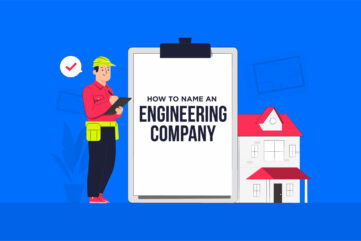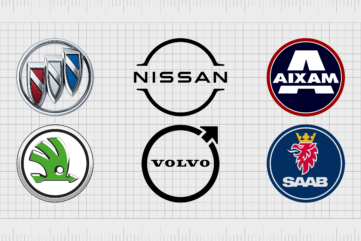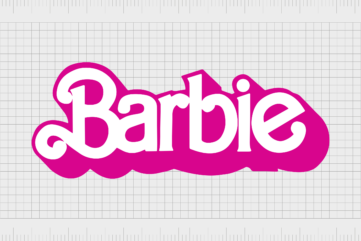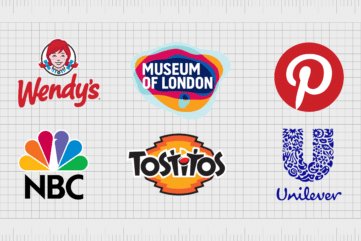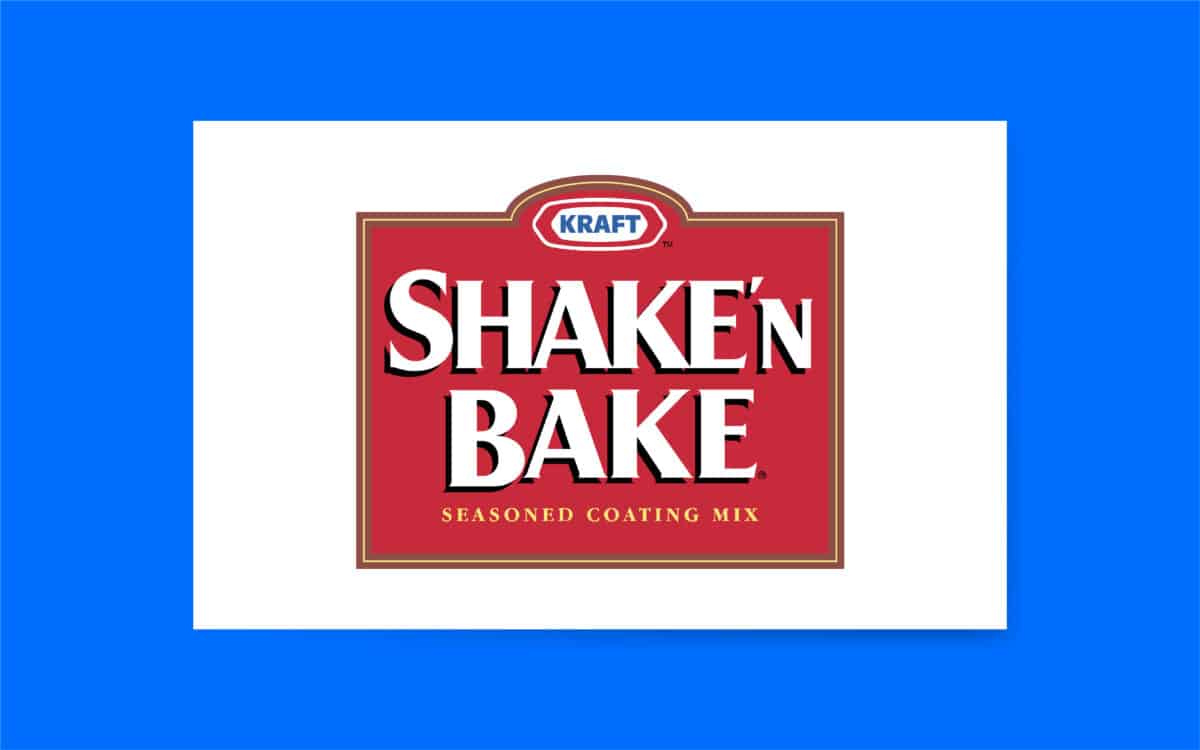What are lexical brand names? The pros and cons of lexical company names

What are lexical brand names, and when could a lexical name benefit your business? If you’ve ever tried to choose a name for a company before, you’ll know it’s just as much an art as it is a science. On the one hand, you need to think of how to connect with your audience psychologically.
On the other, you need to choose a creative, unique, and memorable name.
As the business world has grown increasingly saturated, companies have explored a range of strategies to help them choose the perfect name. Some organizations choose descriptive names, which tell customers exactly what they can expect from the products and services on offer.
Others opt for something more unique and evocative, like Apple or Oracle.
A lexical brand name focuses more heavily on the benefits of using various linguistic strategies to make a name stand out. Some of the oldest businesses in the world chose lexical brand names to grab attention and aid memorability immediately.
Today, we’re going to explore the potential benefits and downsides of a lexical brand name and give you some insights into what these monikers might look and sound like.
What is a lexical brand name?
Let’s start with the basics: what is a lexical brand name?
A lexical brand name is any name that leverages linguistic devices to make the title more distinctive and memorable. Unlike invented terms, and portmanteau names, lexical company names typically feature existing words the customer will be familiar with. However, they also leverage various unique strategies.
Lexical brand names are among the most popular in the business world, particularly among companies that struggle to come up with brand-new titles. They allow for a decent amount of inventiveness and creativity while still building on the existing impact of well-known words.
Because there are so many different kinds of lexical devices organizations can explore, there are many different styles of lexical brand names, including:
Rhyming names
Rhymes naturally appeal to our brains because the words seem to blend perfectly together, allowing for an almost lyrical result. A rhyming name is easy to remember and fun to say. It’s also relatively easy to define a rhyming name using a dictionary. Think of options like StubHub or 7-Eleven.
Alliteration
Alliterative brand names use two or more words that start with the same letter. Older brands use this strategy regularly. Think Coca-Cola or Minute Maid. Using words with two of the same starting letters makes a brand sound more musical and balanced. However, finding a name that doesn’t sound outdated can be difficult.
Assonance
While alliteration uses repeated constants at the start of words, assonance repeats vowel sounds. Think Zendesk or Dropbox. Assonance adds a little more rhythm to a name, making it easier to pronounce. It can also make a title sound more sophisticated.
Some companies can even use assonance and rhyming together like StubHub.
Onomatopoeia
Onomatopoeia is a lexical device that involves using a word that sounds like what something does or what it is. Zoom reminds us of zooming in on something or going fast, so it’s a good choice for a video conferencing company. Zipcar uses the word “Zip” to demonstrate speed.
Puns and wordplay
Puns and wordplay are excellent for companies who want to demonstrate a fun personality. Making a joke out of a name can be a great way to make it more memorable, such as Tequila Mockingbird. But it can also come across as childish in the wrong industries.
Since lexical brand names give companies so many options for making their names stand out, they’ve been trendy among all kinds of companies from virtually every industry. So, how do you know if a lexical name suits you?
What are the pros of lexical brand names?
Lexical company names can have a lot of benefits, depending on the situation.
They’re an excellent way to grab a target audience’s attention rapidly, making a name “sticky” and interesting. Your brain naturally appreciates lexical devices, which is why they’re so common in rhyming, literature, and music.
These titles are also relatively easy to create, even if you’re not using a specialist naming firm. Most of us have at least a basic knowledge of lexical devices and how to use them.
Some of the biggest benefits of Lexical company names include:
They’re attention-grabbing
Using lexical devices in a brand name activates the “Broca” area of the brain, which responds to things considered out of the ordinary. Because we don’t always encounter alliteration, rhyming, and puns in our day-to-day life, seeing a company that uses these strategies can generate our interest.
They’re fun and playful
Lexical names remove the corporate stigma from a brand by making them seem more fun and likable.
We associate lexical devices with relatively playful things, like rhyming and song. Using a lexical name can also make it easier for a company to connect with its audience on an emotional level.
They’re emotional
Many lexical brand names use things like rhythm and humor to appeal to us on an emotional level. If a name makes you think or laugh, it’s more likely to stick with you than a common descriptive name.
They’re easy to say and share
Most lexical business names naturally roll off the tongue. They feel comfortable for us to say, which means we’re more likely to share and mention them to others. This can improve brand reach and make it easier for a company to advertise itself.
Lexical names are great for auditory branding and sound bites.
They’re simple
With a rhyming dictionary and creativity, developing a lexical brand name is relatively simple. If you can’t think of a rhyme or lyrical name, you can always use alliteration or assonance to simply connect repeated sounds.
Most lexical brand names don’t require much work to create.
What are the cons of a lexical name?
The benefits of lexical brand names, alongside their versatility, have prompted countless companies to embrace this strategy for naming over the years. However, this doesn’t mean a lexical name will be the correct choice for every brand.
Because lexical brand names have grown increasingly common, they’re less likely to grab attention today than they once were.
In some cases, companies can try too hard to find a lexical device that fits, ruining the brand. Here are some of the biggest downsides of lexical brand names:
They can seem childish
Using rhyming and alliteration in your name can make it seem more fun, but it can also paint a business childish or too youthful. In the case of pun names, it’s just as easy to deter a customer as it is to attract them.
They’re over-used
In today’s world, most consumers have been consistently exposed to various forms of wordplay from companies trying to capture their attention. This means they’re more likely to overlook names that seem too “obvious.”
They could be too clever
If you work too hard to create a lexical brand name, it could confuse your target audience. Using words that rhyme but are irrelevant to the brand identity you’re trying to develop distils your brand.
They can be overly long
Sometimes, adding rhymes to a name, alliteration, and other lexical devices leads to a lengthy and complex title. This makes it harder for customers to remember the full moniker. It could also create problems when producing a matching logo or choosing a domain name for your business.
They may be hard to trademark
Because lexical names use existing words and phrases and relatively simplistic lexical devices, they’re more likely to be unavailable. It’s important to ensure the title you choose is unique and available to your brand before you dive into branding with a lexical name.
Famous lexical brand names (examples)
Fully understanding the impact and potential of lexical brand names can take time and effort. Companies can use many different styles and lexical strategies to create a lexical name. You may even have difficulty determining which titles are descriptive, evocative, or lexical.
This is because many organizations use a combination of different naming strategies to create their moniker.
The following examples of famous lexical brand names should offer insight into how these terms have worked for other leading brands.
Best Buy
A great example of a company using alliteration and descriptive terms in its brand name, Best Buy keeps things simple with its moniker.
The consumer electronics retailer first launched in 1966 and chose its name to help highlight what customers could expect from its brand – excellent prices, value, and a wide selection of products.
Best Buy isn’t just descriptive; it’s also an alliteration-based brand name. The two “B’s” together create a rhythmic title that’s easy to say and share.
Sizzler Steakhouse
Another example of a company using multiple linguistic devices in one name is Sizzler Steakhouse. This well-known collection of family restaurants combines onomatopoeia in the word “Sizzler” with the alliteration between the two “S” in the title.
In many cases, Sizzler uses the “Sizzler” portion of the title without the secondary component. However, this still suits the company to our list of lexical business names, as the onomatopoeia element is still in play.
Krispy Kreme
A global seller of doughnuts, coffee, and confectionery, Krispy Kreme has achieved phenomenal success since it first launched in 1937. The company now has countless locations worldwide and has maintained its lexical brand name throughout its life.
Krispy Kreme uses alliteration to make its title sound more impactful and interesting. At the same time, the “Kreme” portion of the moniker has a different spelling than most people would expect, which helps to differentiate the brand.
Shake n’ Bake
Created by the Kraft Foods Company, Shake n’ Bake is a bread-crumb coating mixture marketed originally to mimic the flavor of southern fried chicken. The brand opted for a simple rhyming structure for its name to ensure the title would easily roll off the tongue of its customers.
Shake n’ Bake is fun, particularly because the company omits the typical “and” between the two words and replaces it with a simple “n’.”
Lean Cuisine
A brand of frozen dinners and meals sold throughout the United States and Canada by Nestle, Lean Cuisine was first launched in 1981. The company’s title is descriptive, telling customers exactly what to expect. It’s also relatively sophisticated, using words like “cuisine” instead of just food.
Lean Cuisine’s name helps to evoke the idea of a brand with a more luxurious twist. At the same time, the words lean and cuisine rhyme, creating a lyrical experience when we read the moniker or speak it out loud. This helps to boost the memorability of the brand.
StubHub
An American ticket exchange and resale brand, StubHub provides services for consumers around the world looking to sell and buy various tickets for leading events. The company first launched in 2000 with a simple and easy-to-remember portmanteau name.
StubHub sounds fantastic when spoken aloud due to the rhyming components of the name. It also uses assonance in the repeated “u” sound.
7-Eleven
A relatively well-known chain of convenience stores, 7-Eleven actually didn’t intend its name to be a lexical device at first. The company specifically chose the name to draw attention to its unique selling point – extended opening times for shoppers.
Fortunately, the name works on multiple levels. It gives shoppers an insight into what makes the business different, and the two numbers rhyme, too, giving the moniker a lyrical element.
PayPal
PayPal uses both assonance and alliteration in its brand name. This digital transaction company focuses primarily on helping people to share money quickly and conveniently through an app. It’s used primarily for transferring money to friends, hence the “Pal” element.
The name “PayPal” is both a lexical and descriptive name. It tells us precisely what the business allows consumers to do while simultaneously creating a fun and engaging sound.
Coca-Cola
Perhaps the most famous lexical brand name of all time, Coca-Cola is one of the longest-lasting beverage companies in the world. Originally, the name was chosen to refer to the two primary ingredients of the drink – coca leaf and kola nuts.
However, the secondary “k” was changed to a “c” to make the name seem more aligned and lyrical. While Coca-Cola doesn’t use the same ingredient mixture today, its fun and playful name has helped give the brand a consistent place in history.
Twitter might not be the first company you’d think of when looking into lexical brand names, but it offers an excellent insight into how onomatopoeia can be used in branding. Launched in 2006, Twitter’s name is based entirely on birds chirping.
The name highlights the social media platform’s nature, allowing users to share commentary and information in short bursts. It also refers to the chirping sound we hear when we get a notification on our phones.
Zoom
Zoom is another excellent example of an onomatopoeia brand name.
The title immediately makes us think of speed and the sound we hear when cars and vehicles go rushing by. While the word “Zoom” is usually associated with speed, it also has a strong connotation with the video world and the ability to “zoom in” on pictures and content.
Zoom’s name is fantastic because it highlights some of the platform’s core benefits: amazing video and phenomenal speed. The name is also short, simple, and easy to say.
Pop-Tarts
A brand of toaster pastries distributed by Kellogg’s, Pop-Tarts was first launched in 1964. The name of the company was chosen for a number of reasons, including the fun sound of the word “pop,” which is also an onomatopoeia.
The title also describes what the food product does. When it’s done cooking, a Pop-tart “pops” out of the toaster, ready to be eaten.
Tequila Mockingbird
One of the few examples of a pun-based name that has actually achieved significant success over the years, Tequila Mockingbird is a cocktail bar with multiple locations throughout the United Kingdom and London. The name plays on the well-known book title “To Kill a Mockingbird.”
The name Tequila Mockingbird words because it’s both fun and evocative at the same time. Customers know they’re approaching a bar where they can purchase drinks.
ZipCar
A well-known American car-sharing company launched in 2000, Zipcar is explicitly named for the effect of the onomatopoeia word “Zip.” The organization wanted to convey a sense of speed with its name to help customers understand the agile and convenient service they would get.
Zipcar is a relatively effective title and a portmanteau, as it combines both relevant terms in its moniker into one word.
How to choose lexical brand names
If you decide lexical brand names are the best option for your company, there are still a few steps you’ll need to take to ensure your moniker is a success. Lexical brand names can be effective, but they also have a lot of challenges for brands to be aware of.
Here are some tips to help you select the perfect name for your brand or product:
Keep it simple
Many companies make the mistake of choosing a name too complex for their title because they focus too heavily on selecting the right lexical devices. Alliteration, rhyming, and other lexical devices shouldn’t come at the expense of simplicity.
Keep the term short, sweet, and easy to remember.
Explore different lexical devices
Make sure you consider all of the lexical devices available before making a choice. Don’t focus exclusively on rhyming or alliteration without considering all of your options. You can use rhyming dictionaries and other techniques to determine which words make the most sense.
Be creative
Sometimes, the most obvious name will also be the best for a business. However, it’s crucial to consider how you can set yourself apart from the competition. Be bold, think outside the box, and choose something customers are unlikely to expect.
Remember to check your name is available.
If you’re struggling with choosing a lexical brand name, you might find it helpful to work with a specialist on your naming strategy.
A professional naming company will be able to provide you with a list of lexical terms to explore while giving you an insight into which terms are least likely to work effectively for your brand.
Fabrik: A naming agency for our times.

We’ve made our name famous by naming other businesses.
Get in touch if you have a company, product, or service that requires a unique name. Click below, and let’s start a conversation today!
Now read these:
—Types of brand names, the ultimate guide
—An in-depth guide to descriptive brand names
—The pros and cons of abstract brand names
—When to use an evocative brand name
—Your guide to invented company names
—An insight into acronymic business names
—Putting geographic brand names on the map
—Should you name a business after yourself?
—Definitive guide to compound brand names
—Exploring the trend for modern brands names
—Is a playful business name right for you?
—Adding up alphanumeric company names
—Why are metaphorical brand names popular?
—Weighing up technical company names
—Getting to grips with historical brand names


